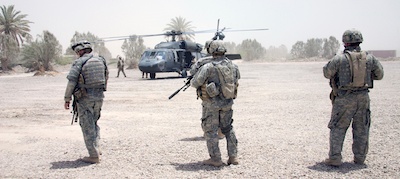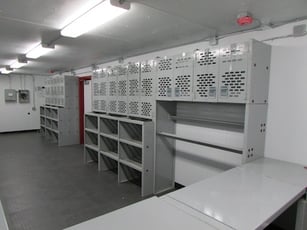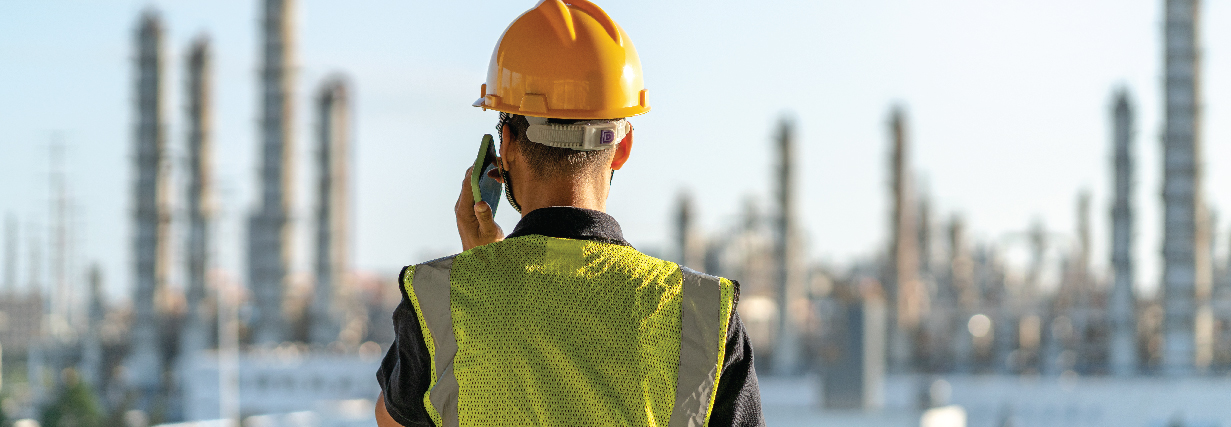A turnaround is a lot like a military exercise. You have to deploy specialized units of personnel onto different parts of the field, furnish them with the right equipment, keep them fed, facilitate a chain of command, reorganize resources into constantly  changing configurations of efficiency and, most importantly, keep your people alive. One of your enemies in this battle is time because lost productivity can cost millions of dollars per day.
changing configurations of efficiency and, most importantly, keep your people alive. One of your enemies in this battle is time because lost productivity can cost millions of dollars per day.
When we first started making blast-resistant buildings (BRBs), our objective was simple: save lives during a blast event. But as we’ve worked with customers, they’ve helped us develop ways to turn BRBs into strategic tools that augment turnaround work flows in unprecedented ways. BRBs have become more than life savers; they have become money savers for turnaround planners.
The most visible advantage of a well-conceived BRB strategy is it allows you to place more people, tools and resources in blast zone worksites. A study performed by one of our customers several years ago showed an increase in productivity of up to four hours per day per employee after placing BRB tool cribs on worksites. When personnel no longer have to make a long trek to the crib every time they need a tool, the company’s bottom line improves measurably. When employees and contractors can be managed from a blast-resistant office just a few steps from where the work is being done, operations leap to a new level of efficiency.
Refining your operational tactics
As these subtler benefits of BRB use have come to light, our customers have started looking at these buildings as a way of strengthening their operational strategies. We have worked hard to refine these advantages, devising new tools and methods to further enhance efficiency.
It goes beyond delivering units on time and picking them up on time. By gaining a clear understanding of how your operation functions, we can help you schedule specific types of BRBs that will improve your turnaround processes. We have personnel devoted to the tasks of site study analysis and logistical inventory planning. We’re now able to delineate our role in your operation with great precision, functioning in lock step with every stage of a turnaround.
We have dramatically expanded our arsenal of BRB types, sizes and configurations.
Lease units offer more options than ever — everything from specialized floor plans to computer and communication functionality to virtually limitless modularity. A multisection unit can now serve as an office complex, a lunch room and a computer lab under one roof.
Early planning is essential to fully leverage these strategic advantages. As one of our customers recently observed, “Each extra day of a turnaround could cost $1 million to $2 million, not counting the income from lost production, which could be another $1 million to $2 million. Looking at those numbers, it’s pretty critical our planning be done well in advance, sometimes up to two years out.”
He’s absolutely right. The earlier you plan, the greater the cost savings. We have deployed our LeaseFleet into strategically placed distribution centers around North America to reduce shipping costs and delivery times. And when customers work with us in the earliest stages of turnaround planning, we can make sure the most strategically advantageous units will be in their area when they need them.
Safety remains the primary goal
First and foremost, we are committed to providing low- to medium-response units (rather than high response, which means high damage with a high risk of casualties). Our design has been blast-tested and proven capable of saving lives under the worst known conditions. As the industry becomes better educated about blast protection, customers are coming to expect this level of protection. “Our global procurement personnel absolutely want to know about any kind of testing that has been done and the differences in what a BRB can hold up against,” one customer said.
Jeff Lange
Jeff Lange, now a managing partner for LANGE, the parent company of RedGuard, founded the company as ABox4U in 1998. It was originally a portable storage company, and through the years has been rebranded with a specialty in creating blast-resistant buildings for oil and gas companies. He saw an early need to focus on safety and made it a passion to create products that save lives. With a strong leadership team at RedGuard that oversees day-to-day operations, he remains a managing partner at RedGuard and several other divisions of his LANGE company.



